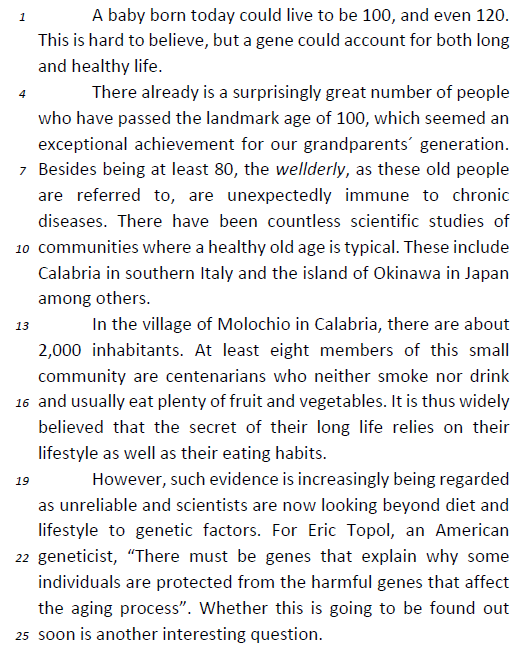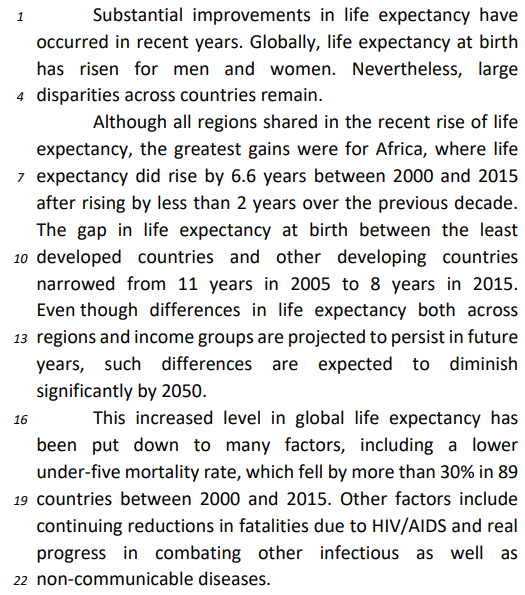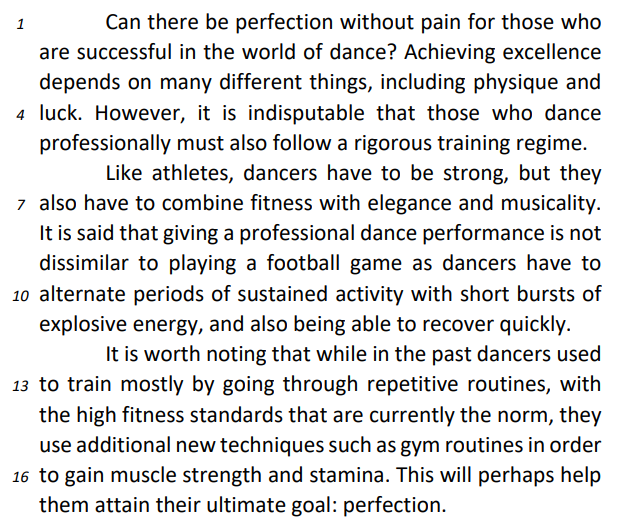Questões de Concurso
Sobre interpretação de texto | reading comprehension em inglês
Foram encontradas 10.134 questões
Text for the item.
A long and healthy life?

Internet: <www.ngllife.com> (adapted).
Based on the text, judge the following item.
The term “wellderly” (line 7) refers to anyone who
turns 80.
Text for the item.
A long and healthy life?

Internet: <www.ngllife.com> (adapted).
Based on the text, judge the following item.
80 years is not a correct alternative for “80” in “at least
80” (line 7).
Text for the item.
A long and healthy life?

Internet: <www.ngllife.com> (adapted).
Based on the text, judge the following item.
The possibility to live to or beyond the age of 100 was
more remote some decades ago than it is currently.
Text for the item.
A long and healthy life?

Internet: <www.ngllife.com> (adapted).
Based on the text, judge the following item.
Nowadays there are far more centenarians than expected.
Text for the item.
A long and healthy life?

Internet: <www.ngllife.com> (adapted).
Based on the text, judge the following item.
The modal auxiliary would can be used instead of “could” in “A baby born today could live” (line 1) without affecting the meaning of the sentence.
Text for the question.
Higher life expectancy worldwide

Text for the question.
Higher life expectancy worldwide

Text for the question.
Higher life expectancy worldwide

Text for the question.
Higher life expectancy worldwide

Text for the question.
The route to perfection

Text for the question.
The route to perfection

Text for the question.
The route to perfection

Text for the question.
The route to perfection


